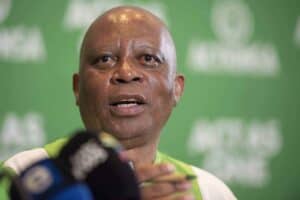Parties were hoping that the election would be postponed to February next year, in line with the earlier wish and application of the Electoral Commission of South Africa to the Constitutional Court.

Many political parties seem to have been caught off-guard by the date of the forthcoming local government elections and are unprepared for their election campaigns.
The majority had not even drafted manifestos and some even had nothing at hand by the time Co-operative Governance and Traditional Affairs Minister Dr Nkosazana Dlamini-Zuma announced the first date of 27 October and then 1 November for the holding of polls.
These parties were hoping that the election would be postponed to February next year, in line with the earlier wish and application of the Electoral Commission of South Africa to the Constitutional Court.
We all know by now about the ANC’s failure to submit its candidate list on the first deadline of 23 August. But the party’s inefficiency in doing anything is a cause for concern.
Even to date it has not concluded its mayoral candidate lists for the major metros – never mind the small local municipalities.
The cause of the delay is not hard to find.
It’s all part of what made it unable to register candidates in the first round – political infighting and bickering over positions.
A party with so much factionalism always struggles to make rational decisions, even on small issues. In our current political setup, mayors are not chosen democratically. What I mean is that they are not selected directly by the voters, but by the party.
However, the ANC should be commended for democratising the selection of councillors, which it did for the first time in the run-up to the November election.
Only a fully democratic system would allow the grassroots people to directly select a mayor who will account to them, instead of a political party.
In our case, a complete overhaul of our electoral system would be required to accommodate people’s voices. Despite the small changes like the selection of councillor candidates, the ANC remains an aloof party where decisions are made at the top.
It is Luthuli House or the national executive committee which decides who is the right person for the job out of the three names from the province.
However, there is a glimmer of hope. President Cyril Ramaphosa promised that, in future, people would be appointed on merit – skills and qualifications would be a factor in appointments of mayors.
This signals the beginning of the end of cadre deployment – a policy at the centre of the ANC inefficiency and poor service delivery.
One foresees interesting changes in the manner which the ANC does things – thanks to the demand for democratisation from membership and communities who demand to have a say in who must represent them.
On the way out are the days when only ANC card-carrying members chose a councillor candidate on behalf of entire ward constituency.
We are looking forward to the day when mayors, members of parliament and legislatures and even the president are chosen directly by voters and not by the party.
Again, there is hope for this as independent candidates are now able to contest the national and provincial elections – thanks to the litigious civil society organisations that frequently test our constitution in courts.
Support Local Journalism
Add The Citizen as a Preferred Source on Google and follow us on Google News to see more of our trusted reporting in Google News and Top Stories.






